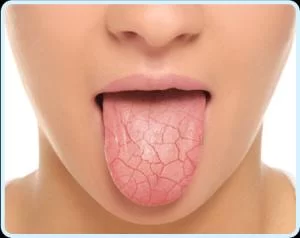
How to Manage Dry Mouth (Xerostomia) – Effective Tips and Treatments
- 1. What Is Dry Mouth (Xerostomia) and What Causes It?
- 2. Recognizing the Symptoms of Dry Mouth
- 3. Risk Factors That Contribute to Dry Mouth
- 4. Treatment Options for Managing Dry Mouth
- 5. My Personal Experience with Managing Dry Mouth
- 6. How to Prevent Dry Mouth in the Future
Dry mouth, medically known as xerostomia, is a condition where your mouth feels excessively dry due to a lack of saliva. It may seem like a minor issue at first, but over time, it can lead to uncomfortable symptoms and impact your oral health. I’ve personally dealt with dry mouth, and it can be incredibly frustrating, affecting everything from speaking to eating. In this article, I’ll share practical tips on how to manage dry mouth, explore its causes and symptoms, and provide treatment options that can help improve your comfort and oral health.
1. What Is Dry Mouth (Xerostomia) and What Causes It?
Dry mouth occurs when the salivary glands do not produce enough saliva, leading to a dry feeling in the mouth. Saliva is essential for washing away food particles, neutralizing acids, and preventing infection. When there isn’t enough saliva, it can lead to problems such as bad breath, difficulty swallowing, and increased risk of tooth decay and gum disease.
There are several potential causes of dry mouth, and it can affect people of all ages. In my case, dry mouth was a side effect of certain medications I was taking. However, the causes of xerostomia can vary widely and include:
- Medications: Many prescription and over-the-counter drugs, including antihistamines, decongestants, and medications for high blood pressure, can cause dry mouth as a side effect.
- Dehydration: Not drinking enough water or losing fluids due to illness, exercise, or excessive heat can contribute to dry mouth.
- Medical conditions: Certain conditions such as diabetes, rheumatoid arthritis, or Sjögren’s syndrome can also result in dry mouth.
- Cancer treatments: Chemotherapy or radiation treatment, particularly when directed at the head or neck, can damage salivary glands, leading to dry mouth.
Understanding the root cause of your dry mouth is important because it can help determine the most effective treatment and management strategies.
2. Recognizing the Symptoms of Dry Mouth
Dry mouth can manifest in several ways, and it’s essential to recognize the symptoms early to begin managing the condition. When I first experienced dry mouth, I noticed some of these common symptoms:
- Persistent dry feeling in the mouth: The most obvious symptom is a constant dry or sticky feeling in the mouth.
- Difficulty swallowing or speaking: Saliva helps lubricate the mouth, and when there’s not enough, it can be hard to swallow or talk clearly.
- Cracked lips and dry throat: The lack of moisture can lead to chapped lips and an unusually dry throat.
- Bad breath: Dry mouth can lead to halitosis (bad breath), as the lack of saliva allows bacteria to thrive in the mouth.
- Changes in taste: Some people may experience a metallic or bitter taste in their mouth due to dry mouth.
If you’re experiencing any of these symptoms, it may be a sign that you’re dealing with dry mouth. It’s important to consult with a healthcare professional to determine the cause and find appropriate treatment options.
3. Risk Factors That Contribute to Dry Mouth
While dry mouth can affect anyone, several factors increase the likelihood of developing this condition. In my own case, I found that my dry mouth symptoms were exacerbated by certain lifestyle choices. Some common risk factors include:
- Age: As we age, the salivary glands may become less efficient at producing saliva, increasing the risk of dry mouth, especially if you take medications regularly.
- Medications: As mentioned earlier, various medications can cause dry mouth, particularly those used for high blood pressure, depression, and allergies.
- Smoking: Smoking or chewing tobacco can reduce saliva production and worsen dry mouth symptoms.
- Health conditions: People with chronic health conditions such as diabetes, autoimmune diseases, or depression may be at a higher risk for dry mouth.
Identifying the risk factors that apply to you can help you make lifestyle changes to reduce the impact of dry mouth.
4. Treatment Options for Managing Dry Mouth
After experiencing the discomfort of dry mouth, I was eager to find ways to relieve the symptoms and manage the condition. Fortunately, there are several effective treatments available:
- Hydration: Drinking water regularly and using saliva substitutes can help keep the mouth moist. I started carrying a water bottle with me and sipping water throughout the day.
- Chewing sugar-free gum or mints: Chewing gum can stimulate saliva production. I opted for sugar-free gum with xylitol, which also helps reduce the risk of tooth decay.
- Prescription treatments: In more severe cases, doctors may prescribe medications that help stimulate saliva production, such as pilocarpine or cevimeline.
- Oral rinses: Special mouthwashes designed for dry mouth can provide relief by coating the mouth and reducing discomfort.
In my case, staying hydrated and using saliva substitutes helped significantly, but it’s important to talk to your dentist or doctor for personalized treatment recommendations.
5. My Personal Experience with Managing Dry Mouth
When I first started dealing with dry mouth, it felt like I had to constantly adjust to a new normal. It was difficult to sleep, and eating and drinking became uncomfortable. However, after speaking with my dentist and exploring treatment options, I discovered that with the right approach, managing dry mouth was entirely possible. Staying hydrated, using saliva substitutes, and making dietary adjustments were all key components in finding relief. I also learned the importance of maintaining good oral hygiene, as dry mouth can increase the risk of cavities and gum disease.
6. How to Prevent Dry Mouth in the Future
While it’s not always possible to completely prevent dry mouth, there are several proactive steps you can take to reduce the risk of developing the condition:
- Maintain good hydration: Drink plenty of water throughout the day to help keep your mouth moist and prevent dehydration.
- Quit smoking: Smoking reduces saliva production, so quitting is one of the best things you can do for your mouth.
- Practice good oral hygiene: Brushing your teeth and gums regularly and using a soft toothbrush can help prevent dry mouth and improve overall oral health.
- Avoid alcohol and caffeine: Both alcohol and caffeine can contribute to dehydration and exacerbate dry mouth symptoms, so I recommend limiting their intake.
If you’re looking for more ways to manage or prevent dry mouth, visit Dentistry Toothtruth for helpful tips and products designed to improve oral health and comfort.







 Family Dentistry of Lakewood4.0 (321 review)
Family Dentistry of Lakewood4.0 (321 review) Emergency Dentist 24/7 Downingtown1.0 (1 review)
Emergency Dentist 24/7 Downingtown1.0 (1 review) Northside Dental Clinic4.0 (281 review)
Northside Dental Clinic4.0 (281 review) Premier Orthodontics4.0 (227 review)
Premier Orthodontics4.0 (227 review) DentFirst Dental Care McDonough4.0 (534 review)
DentFirst Dental Care McDonough4.0 (534 review) Aspen Dental - Warwick, RI4.0 (600 review)
Aspen Dental - Warwick, RI4.0 (600 review) The Importance of Oral Health Education During Pregnancy for a Healthy Pregnancy
The Importance of Oral Health Education During Pregnancy for a Healthy Pregnancy Best Tips for Brushing Your Teeth Properly for Healthy Gums: Essential Techniques for Oral Health
Best Tips for Brushing Your Teeth Properly for Healthy Gums: Essential Techniques for Oral Health Why Skipping Dental Checkups Can Lead to Bigger Oral Health Problems
Why Skipping Dental Checkups Can Lead to Bigger Oral Health Problems Advantages of Porcelain Dental Restorations
Advantages of Porcelain Dental Restorations How Can Diabetes Cause Tooth and Gum Problems? Preventing and Managing Oral Health Issues
How Can Diabetes Cause Tooth and Gum Problems? Preventing and Managing Oral Health Issues Healthy Habits for Promoting Good Oral Health and Hygiene: Tips for a Healthy Smile
Healthy Habits for Promoting Good Oral Health and Hygiene: Tips for a Healthy Smile